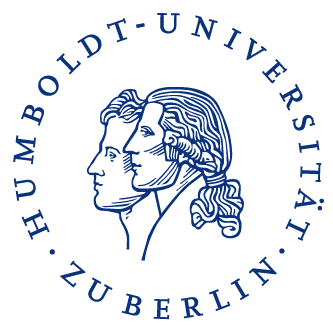Complex Algebraic Geometry


| Friday, 9 October |
13.20 - 13.30 13.30 - 14.20 14.20 - 15.00 15.00 - 15.50 15.50 - 16.50 16.50 - 17.40 19.30 onwards |
Welcome Talk: Daniel Huybrechts Break Talk: Gerhard Pfister Coffee break Talk: Eckart Viehweg Dinner at Restaurant Honigmond, Tieckstrasse 12, Berlin. |
Saturday, 10 October |
09.30 - 10.20 10.20 - 11.00 11.00 - 11.50 11.50 - 14:00 14:00 - 14.50 14.50 - 15.20 15.20 - 16.10 |
Talk: Bernd Kreussler Coffee break Talk: Le Dung Trang Lunch break Talk: Motohico Mulase Coffee break Talk: Hélène Esnault |
Titles and abstracts
Hélène Esnault, Coherent D-modules over the complex numbers and in characteristic p>0.
Bernd Kreussler, Moishezon twistor spaces -- the past two decades
Abstract:
After briefly recalling twistor spaces, I shall give a survey of
results about compact Moishezon twistor spaces of complex
dimension three. This includes an answer to a question raised
by Herbert Kurke in 1991.
Daniel Huybrechts, Chow groups of K3 surfaces
Motohico Mulase, The Laplace transform of Hurwitz numbers
Abstract: Laplace transformation changes a function
defined on positive integers (or more generally, on
positive real numbers) into a holomorphic function.
While Fourier transformation is a duality, the nature
of Laplace transform is quite different.
For a fixed genus, the Hurwitz number is a function
of a partition. What happens if we apply the Laplace
transform to the Hurwitz numbers?
Surprisingly, the result turns out to be a simple polynomial.
These polynomials are easy to calculate, since they
satisfy an effective recursion formula. When we restrict
the formula to the highest degree terms of the polynomial,
we recover the Witten-Kontsevich theorem. And when
restricted to the lowest degree terms, the recursion
gives the lambda-g formula of Faber and Pandharipande.
The recursion also proves the Bouchard-Marino conjecture
on Hurwitz numbers, which is a special case of the
Eynard-Orantin formula that is originated in random matrix
theory and is implemented to topological string theory by
Bouchard-Klamm-Marino-Pasquetti and Dijkgraaf-Vafa.
I will review a mathematical side of the developments on
these subjects. This talk is based on my recent work with
Borot, Eynard, Safnuk, and Zhang.
Le Dung Trang, Bifurcation diagrams and Morse theory
Abstract: We shall introduce bifurcation diagrams of complex functions
and show how
they contribute to understand Morse theory associated to singular spaces.
Gerhard Pfister, 25 Years of SINGULAR
Abstract: The computer algebra system SINGULAR has its 25th birthday.
The talk will explain the interplay between computer algebra and
its applications and illustrate the development during the last 25
years. We will see that needs in algebraic geometry and singularity
theory always forced the development of the system. Deep theorems
in group theory could be solved using the system.
New applications to electrical engineering will be explained. We will
also see applications to coding theory, partial differential equations.
SINGULAR can also solve a Sudoku.
Eckart Viehweg, Algebraically integrable foliations of general type
Abstract: A foliation on a non-singular projective variety is algebraically
integrable if all leaves are algebraic subvarieties. A non-singular
hypersurface X in a non-singular projective variety M equipped with a
symplectic form has a naturally defined foliation, called the characteristic
foliation on X.
We show that if X is of general type and if the dimension of M is larger than
or equal to 4, then the characteristic foliation on X cannot be algebraically
integrable.
This is a consequence of a more general result on Iitaka dimensions of certain
invertible sheaves associated with algebraically integrable foliations by
curves. Joint work with Jun-Muk Hwang.